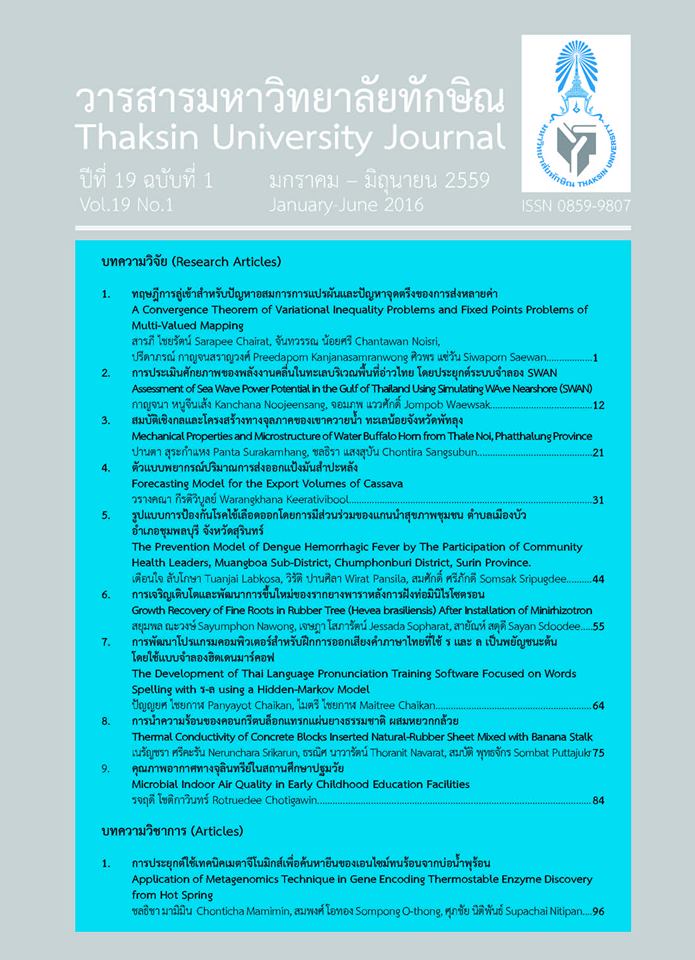Application of Metagenomics Technique in Gene Encoding Thermostable Enzyme Discovery from Hot Spring
Main Article Content
Abstract
Metagenomics is the high-throughput approach for gene discovery from environmental microorganism. The clone library was constructed by direct extraction of genomic DNA from environmental microorganisms, cloning into DNA vector and transforming into host cell. The desired genes were examined by using functional-based screening, which is a direct detection of specific phenotypes, and sequences-based screening. The novel enzymes are reported by using metagenomics approach such as amylase (pAMY gene) from soil library. However the most enzymes from moderate temperature environment are unstable under high temperature condition. Thus metagenomics approach was applied to find the gene coding thermostable and therophilic enzymes from high temperature environment such as hot spring. Many novel genes were found from organisms in hot springs, for example, Env Npu193A, PLP and Est1 genes coding neopullulanase-like enzyme, patatin-like phospholipase and esterase. These enzymes had high activity and stability under high temperature condition


